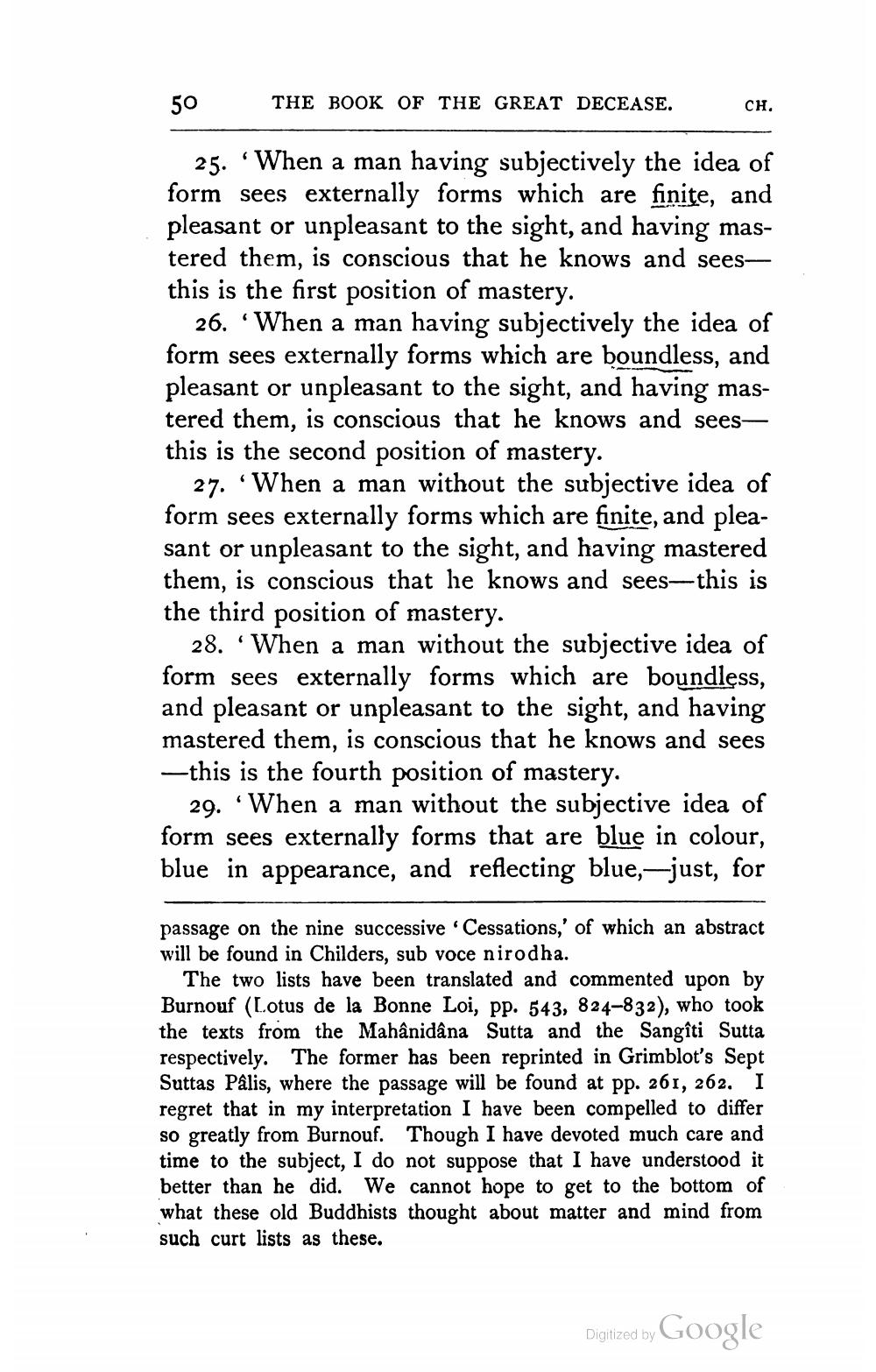________________
50
THE BOOK OF THE GREAT DECEASE.
ch.
25. When a man having subjectively the idea of form sees externally forms which are finițe, and pleasant or unpleasant to the sight, and having mastered them, is conscious that he knows and seesthis is the first position of mastery.
26. “When a man having subjectively the idea of form sees externally forms which are boundless, and pleasant or unpleasant to the sight, and having mastered them, is conscious that he knows and seesthis is the second position of mastery.
27. When a man without the subjective idea of form sees externally forms which are finite, and pleasant or unpleasant to the sight, and having mastered then, is conscious that he knows and sees—this is the third position of mastery.
28. When a man without the subjective idea of form sees externally forms which are boundless, and pleasant or unpleasant to the sight, and having mastered them, is conscious that he knows and sees —this is the fourth position of mastery.
29. When a man without the subjective idea of form sees externally forms that are blue in colour, blue in appearance, and reflecting blue,-just, for
passage on the nine successive Cessations,' of which an abstract will be found in Childers, sub voce nirodha.
The two lists have been translated and commented upon by Burnouf (Lotus de la Bonne Loi, pp. 543, 824-832), who took the texts from the Mahânidâna Sutta and the Sangîti Sutta respectively. The former has been reprinted in Grimblot's Sept Suttas Palis, where the passage will be found at pp. 261, 262, I regret that in my interpretation I have been compelled to differ so greatly from Burnouf. Though I have devoted much care and time to the subject, I do not suppose that I have understood it better than he did. We cannot hope to get to the bottom of what these old Buddhists thought about matter and mind from such curt lists as these.
Digitized by Google




